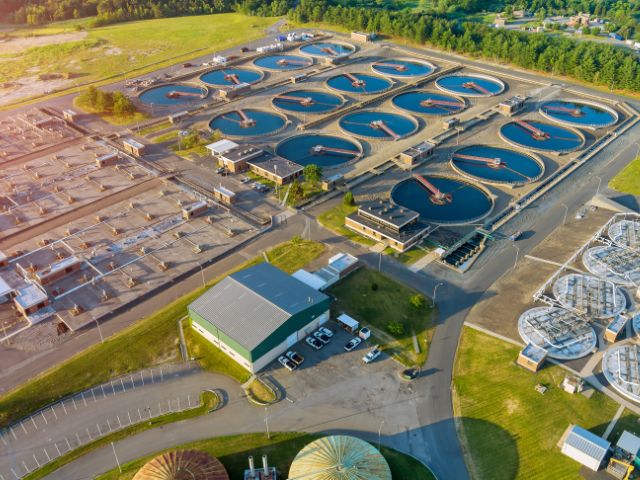

Water treatment facilities use a five-step process to remove impurities and contaminants from public and private water. Read about the five-step process of municipal water treatment to understand what it takes to provide safe, clean water to communities.
The first step in many water treatments is coagulation. During this step, the system deposits chemicals with a positive charge into the water.
The positively charged chemicals, such as aluminum or iron, neutralize the negative particles in the water. The particles and chemicals stick together and form larger bodies.
The second stage in the five-step process of municipal water treatment is flocculation. During this stage, the system gently stirs the water by mechanical or hydraulic means.
The stirring causes the particles to clump together and form floc. Water treatment plants can add other chemicals at this stage to encourage floc formation.
The sedimentation process separates solids from the water. Because floc is heavier than water, it drifts to the bottom of the tank. Once the solids settle there, the clear water is ready for the next stage.
During the fourth stage, called filtration, water passes through a series of filters. The filters remove remaining impurities and contaminants.
The filters consist of different materials, such as charcoal, sand, and gravel. The filters remove contaminants such as bacteria, viruses, chemicals, and parasites.
Finally, the treatment facility disinfects the water, adding chlorine or chloramine to the tanks to kill any remaining bacteria and viruses. A low amount of disinfectant remains in the water to kill germs that live in the pipes between the treatment plant and the water’s destination.
While chlorine is an effective disinfectant, you may experience negative side effects of chlorinated water in your home. If you have issues with your water quality, install an in-home water treatment to improve the smell and flavor of your drinking water or the performance of the water you clean with.
24World Media does not take any responsibility of the information you see on this page. The content this page contains is from independent third-party content provider. If you have any concerns regarding the content, please free to write us here: contact@24worldmedia.com

Common Mistakes When Using Athletic Field Tarps

High-Performance Diesel Truck Upgrades You Should Consider

Warehouse Optimization Tips To Improve Performance

Fire Hazards in Daily Life: The Most Common Ignition Sources

Yellowstone’s Wolves: A Debate Over Their Role in the Park’s Ecosystem

Earth Day 2024: A Look at 3 Places Adapting Quickly to Fight Climate Change

Millions of Girls in Africa Will Miss HPV Shots After Merck Production Problem

This Lava Tube in Saudi Arabia Has Been a Human Refuge for 7,000 Years

Four Wild Ways to Save the Koala (That Just Might Work)

National Academy Asks Court to Strip Sackler Name From Endowment

Ways Industrial Copper Helps Energy Production

The Ins and Out of Industrial Conveyor Belts